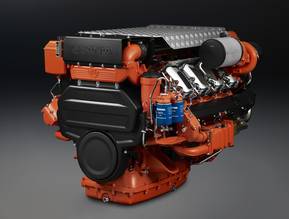Wärtsilä and Grimaldi Unveil System to Filter Ocean Microplastics
Wärtsilä and the Grimaldi Group have unveiled a system that uses exhaust gas scrubber washwater to tackle microplastics in the world’s oceans.
According to the association Plastic Europe, 368 million tonnes of plastic were produced in 2019 worldwide, and around 3%, or 11.4 million tonnes, of this plastic ultimately ends up in the ocean. To tackle the growing amount of microplastics in the world’s seas, Grimaldi has developed and patented a system that filters out microplastics from open loop scrubber washwater.
Wärtsilä, in partnership with the Neapolitan group, will take the microplastics filtration system - which traps plastic particles before the washwater is returned to the ocean - to market. The capability to filter microplastics will be an integrated feature of Wärtsilä’s future wash-water treatment system.
The new system requires very little changes to onboard procedure and uses the natural capabilities of an open loop scrubber to contribute to cleaning the oceans during each voyage. Currently, a 10-megawatt engine will require scrubbers to process approximately 450 m3 of water per hour, potentially resulting in a large amount of microplastics being captured from seawater. According to early test results, the microplastics filtration system is efficient in capturing particles smaller than 10µm and the captured concentration by volume equals around 76 particles/m3.
“The idea for this innovative technology originated from recognizing that open loop exhaust gas cleaning systems can draw seawater for exhaust scrubbing and simultaneously collect microplastic present in the oceans as part of their normal operation”, commented Emanuele Grimaldi, managing director of the Grimaldi Group. “We have already completed pilot testing of this system onboard one of our vessels deployed between Civitavecchia and Barcelona. The results are promising, with 64,680 microplastic particles collected on a single voyage between these two ports.”












